Nigeria: The Morning After
More on:
I have an oped today in The International Herald Tribune on the Nigerian elections. I also think U.S. outreach to northern Nigeria should include according Muhammadu Buhari the respect commensurate with his political importance in the North.
Asch Harwood, the CFR Africa research associate, just returned from Nigeria, where he was stationed in Enugu and its environs as an international election observer. Below, Asch provides pictures he took and shares some interesting observations based on what he saw of the national assembly and presidential elections.
See Asch’s comments below each photograph:
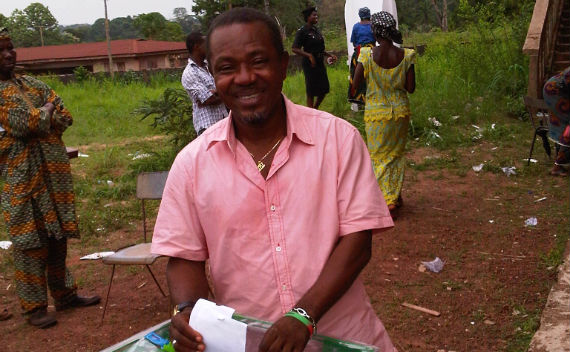
This gentleman truly exemplifies the overall mood of the national assembly and presidential elections at the polling stations I visited in and around Enugu. The atmosphere was often festive and people smiled widely as they deposited their ballots. This man actually asked me to take his photo, noting his excitement to participate in this historic moment.
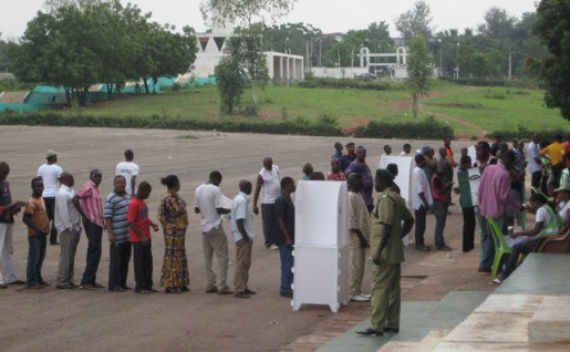
This photo was taken at Okpara Square, one of the closest polling units to the state Independent National Electoral Commission (INEC) office. While this unit opened two hours late on national assembly election day, polling officers easily accredited everyone before voting was scheduled to begin at noon. Notably, for the presidential election the following Saturday, polling officers had their units open by 8:30 a.m. I estimated a 25 to 30 percent turnout of registered voters for the national assembly election and closer to 40 percent for the presidential election.
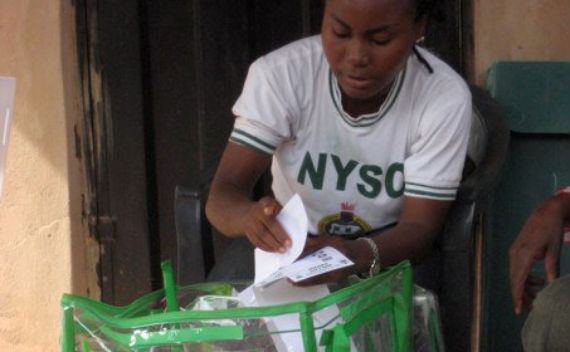
Overall, I was impressed with the conducted of the National Youth Service Corp polling staff. They were committed to their roles and managed to keep voting moving despite logistical difficulties and challenging circumstances. However, there were some problems. I watched as this corper removed stacks of ballots, a common sign of ballot box stuffing, and proceeded to count them. Of the twenty people who decided to stay and watch the counting, no one seemed overly concerned. Turnout at this unit was suspiciously high, around ninety percent, and the number of ballots cast equalled the number of ballots issued, an uncommon occurrence.
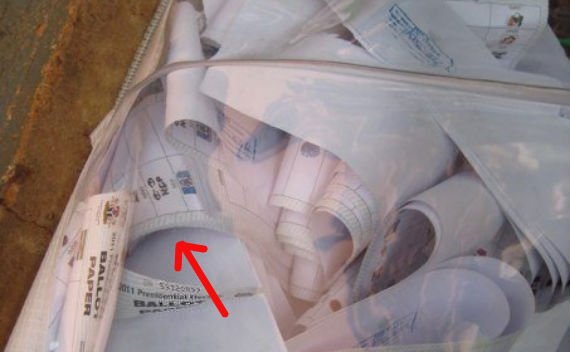
In this ballot box at another polling unit about a forty minute drive south of Enugu, clumps of ballots were clearly visible. Despite a high turnout, virtually no one had stayed around to watch the counting.
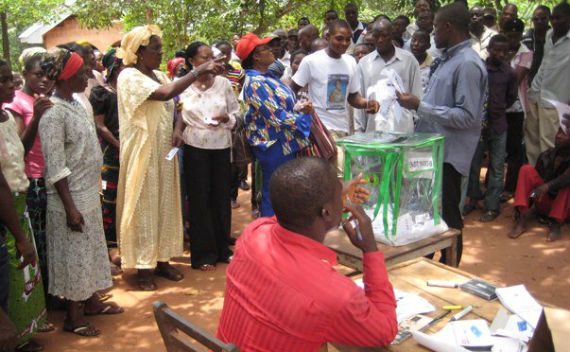
Instead of allowing voters to put ballots in the ballot box themselves, the polling agent standing directly behind the box was checking ballots before he placed them in the box himself. At first I thought he was doing this in response to criticism over the large number of spoiled ballots from the national assembly election the week before. However, at the polling unit across the street, an accredited People’s Democratic Party (PDP) agent was doing the same thing.
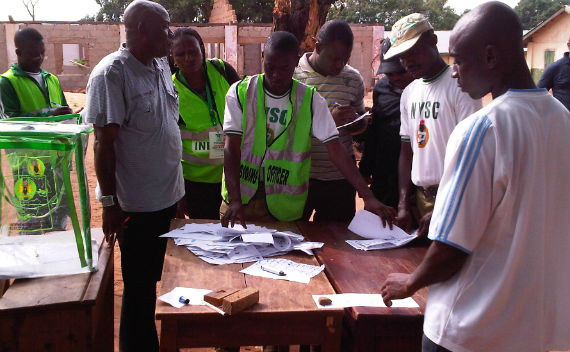
This is Enugu governor Sullivan Chime’s polling unit. Someone had kindly provided ample lawn chairs for everyone to sit and watch the voting. After counting was finished, free food was distributed despite the heavy presence of international and domestic observers and media.
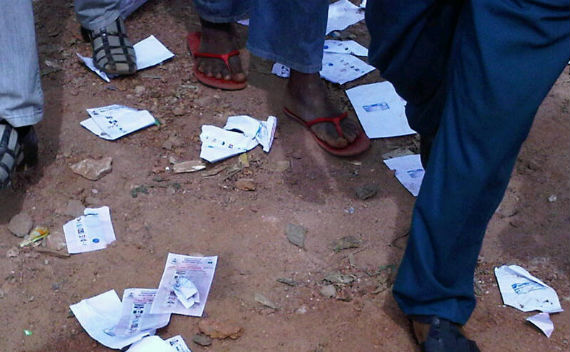
When I arrived at this polling unit, torn ballots papers were strewn across the road, and people were upset. I was told that armed men just minutes earlier had threatened everyone present and then destroyed the ballot box. Witnesses alleged that the thugs were PDP supporters who were angry that the People for Democratic Change (PDC), an opposition party, was likely to win in this area.
More on:
 Online Store
Online Store
